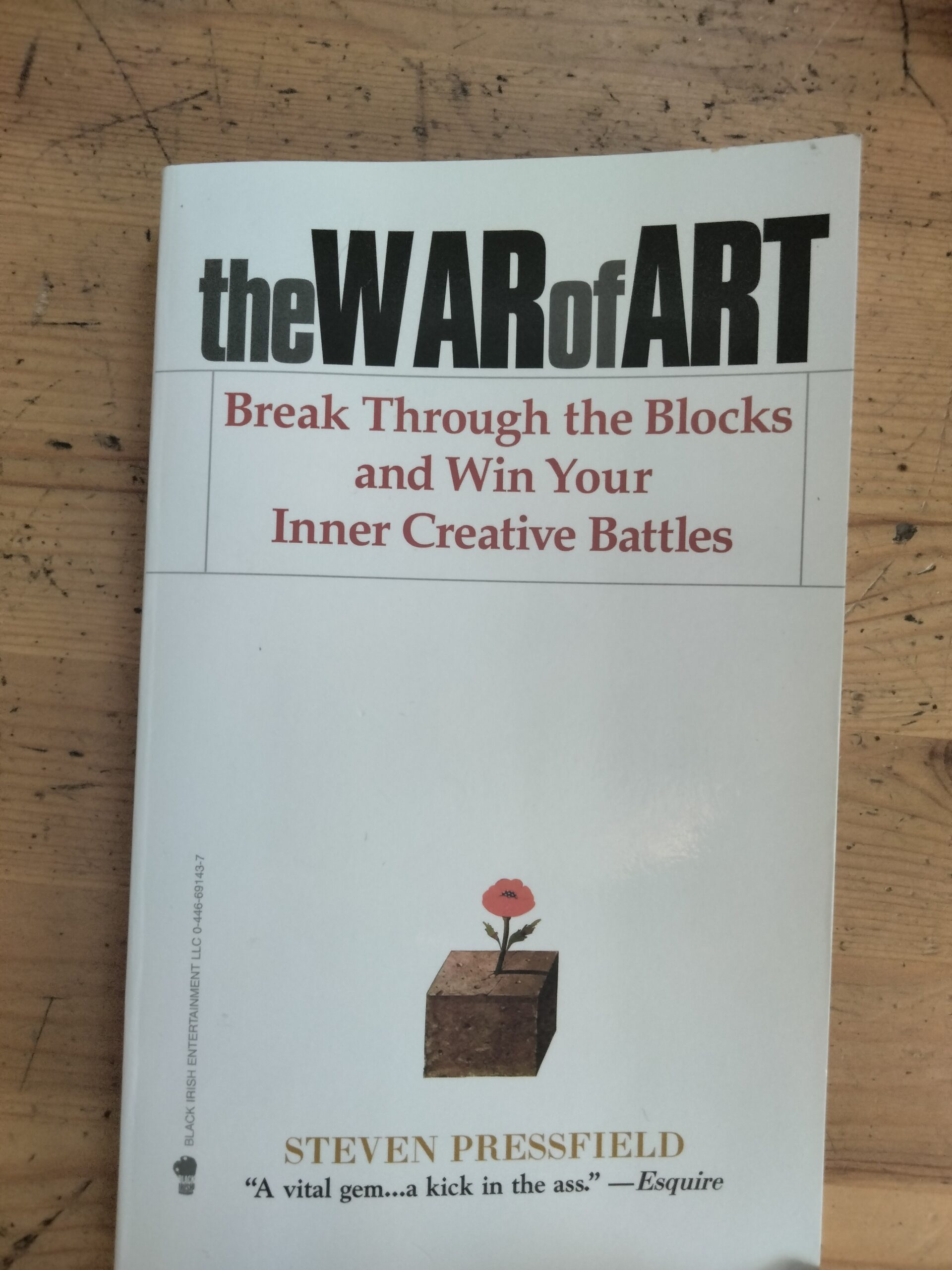How to Turn and Stay Pro: Beat the Noonday Devil

I used to work with David Grann, author of Killers of the Flower Moon and The Wager, among other smash-hit nonfiction books.
When he was a staff writer, his office was around the corner from me and the other interns in the bullpen at the old building in downtown DC of The New Republic at 1220 19th Street NW. Even for a newbie like me, it was easy to see that David worked differently from the rest of us.
When he worked on a story, he had a routine that can only be described as immersive. He shut his door; he stayed inside for an hour or two; and after he opened his door, he did a two-step: at first, his head was down and he looked dazed as if he had come out of a trance or a bout of sleepwalking, then he would look up, get his bearings, and walk with purpose to chat with a colleague or two. He repeated these steps three to five times more each day.
This was in the late 1990s, so David might have changed things up. Yet I doubt he has. He produced excellent work then, and he is producing excellent work now.
Put your butt where your heart is
David’s work routine has stuck with me all these years. I recalled it while reading Steven Pressfield’s The War of Art: Break Through Blocks and Win Your Inner Creative Battles.
Mr. Pressfield qualifies as an expert on the topic of art for both good and bad reasons. On the one hand, he wrote the novel The Legend of Bagger Vance, which became a movie. On the other hand, he has had a string of failures, especially unpublished novels and screenplays.
As important, the literary success of writers like David Grann illustrates Mr. Presfield’s thesis.
To succeed in a creative field, you must (and here I’m paraphrasing) put your butt where your heart is. “When we sit down each day and do our work, power concentrates around us,” Mr. Pressfield wrote. “We become like magnetized rods that attract iron filings. Ideas come. Insights accrete.”
Mr. Pressfield has a name for writers like David: professionals.
They focus and do the work without distraction. They prepare. They are orderly. They are patient. And they endure and “act in the face of fear and failure—no excuses,” Mr. Pressfield wrote.
Fight The Resistance
The passages above may mislead readers, though. The War of Art is not, really, about how to succeed as an artist or creative. It’s about how to avoid failing.
In a more religious America, people identified the enemy as the noonday devil, a form of spiritual sloth or acedia that afflicts workers in the afternoon.
Mr. Pressfield calls the enemy The Resistance, an internal spiritual force that afflicts great and terrible alike (and perhaps even David Grann himself). “Resistance prevents us from achieving the life God intended when he endowed each of us with our own unique genius,” he wrote.
This sounds highfalutin. Really, it’s not.
The most common form of The Resistance is procrastination, an activity nearly everyone can relate to. Others include getting in trouble and seeking out drama.
To his credit, Mr. Pressfield illustrates the temptation with wry humor. “Why put in years of work designing a software interface,” he asked, “when you can get just as much attention by bringing home a boyfriend with a prison record?”
Amateur hours
To yield to The Resistance is all too human. When done regularly, the consequences are graver.
The artist acts less like a professional and more like an amateur. His attitude, aspiration, and work ethic are different. He plays for fun rather than for keeps, works part-time not full-time, and considers his work an avocation or hobby rather than a vocation.
The War of Art has attracted a legion of fans, among them mega best-selling author James Clear, who called the tome “the little book of ass-kicking.” I don’t think the book deserves that level of praise.
It’s more of a useful, even important, guide to turning and staying pro. For books on how to succeed as a creative, readers are better off picking up a copy of blogger Scott Young’s latest book, Get Better at Anything, or Cal Newport’s Deep Work.
Still, The War of Art has contributed to Americans’ understanding of creativity.
After all, inventor Thomas Edison said famously that “genius is one percent inspiration and ninety-nine perspiration.” He meant that innovation owes less to brilliant ideas than hard work.
Mr. Pressfield would add a proviso: most innovators and artists fail to work hard and perspire enough, not out of laziness but convenience and the pursuit of transitory pleasures.
-30-

There is some risk of falling into an American weakness for endless dreaming and strategizing about work and success. The huge output of the self-help industry, the endless cliches of sports coaches and the even less creative phrases of the players, the prosperity gospel enthusiasts, the endless conventions and conferences about how to improve yourself (that can cost thousands)… and one could go on. The great Thomist Josef Pieper pointed out that all of this can be crushing to real spiritual growth.
I haven’t seen it since it came out, so maybe it has aged badly, but I have never forgotten the portrayal of the destructive potential in all this (perhaps only lightly disguised pursuit of mammon and other idols) by the Annette Benning character in “American Beauty.” I mention it because I’m reminded of it nearly daily by watching or listening to somebody right in front of me. This is no theoretical social force!
You make a good point about the importance of having the proper motivation when pursuing success: don’t do so to make money alone. Yet I see nothing materialistic in trying to be immersed for a limited time in one’s work. Vocations can beget sanctity, right?
Yes. Vocation is the key word.